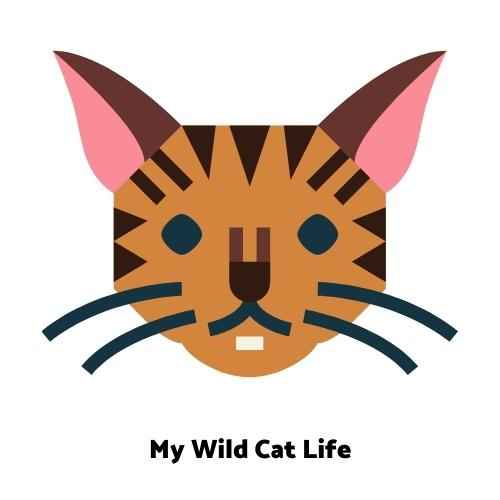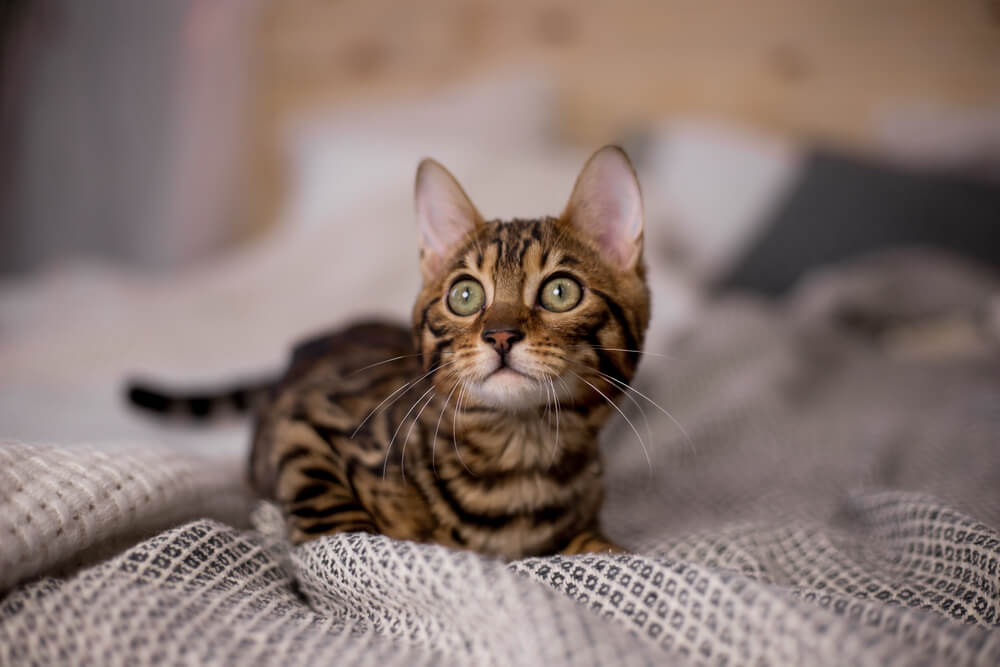Bengal cats are known for being rambunctious and vocal. But what are the reasons behind their behavior? Some people say that Bengals simply like to make noise, while others believe that they are trying to communicate with their owners. There may be several different reasons why Bengal cats vocalize so much.
One possibility is that Bengal cats are trying to communicate with their owners. Bengals are very intelligent and often seem to understand what their humans are saying. This intelligence may lead them to vocalize to get their point across.
Additionally, Bengal cats may meow more than other cats because they want attention from their humans. They know that meowing is a surefire way to get some quality time with their beloved owners.
Another possibility is that Bengals vocalize so much because they are high-energy creatures. Bengals are notoriously active and may vocalize as a way to release all of their excess energy.
Whatever the reason behind their behavior, Bengal cats are not shy about making noise. So a Bengal is probably not the right pet for you if you’re looking for a quiet kitty. But if you don’t mind a little bit of chatter, these chatty cats can make wonderful companions.
Do Bengal Kittens Meow a Lot?
If you’ve ever owned a Bengal kitten, you know that they can be very vocal creatures. There are a few different possible explanations.
One possibility is that Bengal kittens meow more than other kittens because they are trying to communicate with their humans. As we mentioned before, Bengals are very intelligent cats.
They often seem to understand what we’re saying, which may lead them to vocalize to get their point across. Besides, Bengal kittens may meow more than other kittens because they want attention from their humans.
Additionally, Bengal kittens may be stimulus-seeking animals. This means that they become bored easily and need lots of stimulation to stay happy. As a result, they may meow excessively to find something to do.
Why Does My Bengal Keep Meowing?
One of the first things you’ll notice about your Bengals is that they love to vocalize. Whether they’re chirping, trilling, or just plain old meowing, Bengals are very communicative cats. So what does all that meowing mean?
Well, sometimes it can be difficult to tell because, like humans, every Bengal has a unique way of expressing themselves. However, there are a few common reasons why Bengals meow more than other cat breeds.
One reason is that Bengals are simply more social than most cats. They love companionship and attention, so they may meow more often to get your attention.
If you find that your Bengal is constantly meowing for attention, try to provide them with opportunities for social interaction, such as regular playtime and grooming sessions.
Another reason Bengals may meow more often is that they are seeking food. Bengals are known for their love of food, and they may beg or meow for snacks more often than other cats.
If you think your Bengal is meowing for food, try to feed them on a regular schedule and make sure they have access to plenty of fresh water.
Finally, some Bengals meow more often because they are simply trying to communicate something. If your Bengal seems to be meowing more than usual and you can’t seem to figure out why pay attention to its body language and see if you can interpret what they’re trying to tell you.
With a little patience and understanding, you should be able to figure out your Bengal’s unique meowing pattern in no time.
What Are the Characteristics of a Vocal Bengal Cat?
One of the most distinctive things about Bengal vocalizations is that they often sound more like chirps or trills than traditional meows. This is because Bengals are descended from Asian leopard cats, which are known for their high-pitched vocalizations.
In addition to sounding different, Bengal vocalizations also tend to be more frequent and insistent than other cats. This is because Bengals are very social animals, and they love to have your attention.
If you find that your Bengal is meowing more often than usual, it’s likely because they want your attention for something specific.
Finally, Bengal vocalizations can also be quite loud. This is another trait that they inherit from their Asian leopard cat ancestors. So if you’re looking for a quiet, introspective cat, a Bengal is probably not the right breed for you!
What Are the Different Types of Bengal Vocalizations?
Bengals use a wide range of vocalizations to communicate with their owners. Here are some of the most common types of Bengal vocalizations and what they typically mean:
Chirping: Chirping is a high-pitched, happy sound that Bengals make when they’re excited or content. If you hear your Bengal chirping, it’s likely because they’re happy and comfortable.
Trilling: Trilling is similar to chirping, but it’s a bit lower in pitch and lasts for a longer time. Bengals typically trill when they’re greeting their owners or asking for attention.
Begging: Begging vocalizations are usually high-pitched and insistent. Bengals typically beg when they’re hungry or want something specific, such as access to the outdoors or a particular toy.
Meowing: Meowing is the most traditional cat vocalization, and Bengals use it for a variety of purposes. For example, they may meow when they’re hungry, want attention, or are trying to communicate something specific.
Yowling: Yowling is a loud, prolonged vocalization that Bengals typically use when they’re in heat or feeling threatened. If you hear your Bengal yowling, it’s essential to take them to the vet to make sure they’re not in pain or experiencing any other health problems.
What Is the Best Way to Respond to Bengal Vocalizations?
The best way to respond to Bengal vocalizations depends on the specific situation. If your Bengal is meowing for food, the best response is usually to feed them on a regular schedule and make sure they have plenty of access to water.
If your Bengal is meowing for attention, the best response is usually to give them some quality time and affection.
Finally, if your Bengal is yowling or making any other type of distressed vocalization, it’s necessary to take them to the vet immediately. This could be a sign of a health problem, and it’s always better to be safe than sorry!
Bengal cats are beautiful, unique animals that make great companions. If you’re thinking about adding one to your family, make sure you’re prepared for their vocal nature! With a bit of patience and understanding, you should be able to build a strong bond with your Bengal cat in no time.
How Do I Know if My Bengal Is Talking to Me?
One of the most distinctive things about Bengal vocalizations is that they often sound more like chirps or trills than traditional meows. So if you’re used to hearing traditional meows from your cat, be prepared for something a little different from your Bengal!
While all animals have different reasons for vocalizing, the most common reason is to communicate with others.
In general, animals vocalize as a way of communicating with others. This can be for various purposes, such as asking for food or water, trying to get attention, or warning others of danger.
By understanding the reasons behind an animal’s vocalizations, we can better connect with them and help them feel more comfortable around us.
Cats meow to communicate with their owners, while dogs bark to warn others of danger or to get attention. Whales sing to attract mates, and birds chirp and tweet to keep in touch with other flock members.














